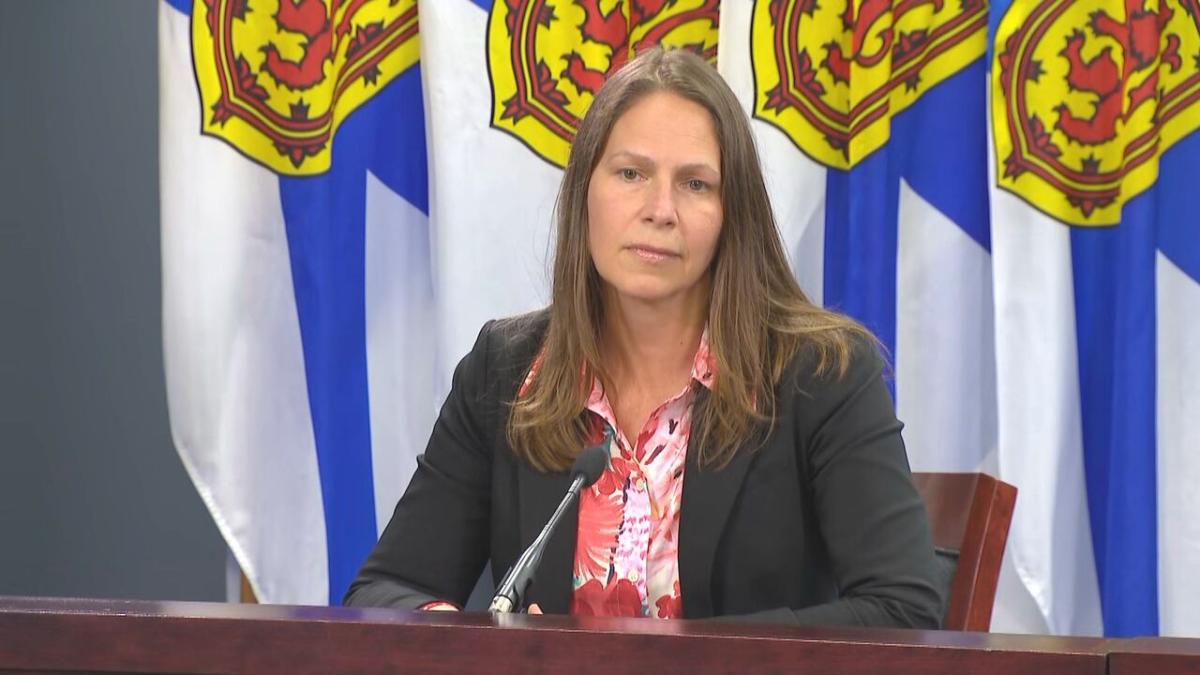The Department of Education says it’s making “significant progress” on an updated code of conduct for Nova Scotia students, but a union that represents school support staff says they have yet to be consulted.
The province pledged to update the code of conduct after an auditor general’s report found that schools were not equipped to deal with rising rates of violent incidents. In June, the Department of Education said a draft should be ready by September.
On Thursday, Minister Becky Druhan told reporters at the legislature that the draft is coming along, and the province has consulted many groups including the the Nova Scotia Teachers Union (NSTU), the Public School Administrators Association of Nova Scotia and the Canadian Union of Public Employees (CUPE).
Druhan said the department was also a part of a meeting last week that included more than 800 administrators, staff and school advisory council members where they discussed what they’d like to see reflected in the updated code of conduct. Moreover, an online survey sent out to school staff received more than 4,500 responses.
But CUPE, the union that represents staff including educational assistants, librarians and bus drivers, said that the department has not given its top union leaders, including its president and education co-ordinator, the chance to meet to discuss the policy.
“We’re not traditionally the highest paid in the sector, so maybe they just don’t value us the same way as they value different classifications,” said Nan McFadgen, president of CUPE Nova Scotia.

Nan McFadgen, president of CUPE Nova Scotia, with school support workers in August. (Jean Laroche/CBC)
McFadgen said her union is often left out. For example, she said though the teachers’ and school administrators’ unions were part of a June discussion with the deputy minister about school violence, her members were not invited to speak.
“It happens all the time, in particular with this government,” she said. “I don’t know that they’re interested in the experiences of our workers.”
McFadgen stressed that her members often face the brunt of violent incidents at school, and have a lot to contribute when it comes to a code of conduct.
According to a recent union report called Safe Staff, Safe Schools, 65 per cent of school support staff in Nova Scotia said they’ve witnessed or experienced violence in schools on a weekly basis, while 31 per cent said it’s on a daily basis.
Communications staff for the Department of Education did not reply to CBC in time for publication when asked why there were discrepancies between McFadgen and Druhan’s perspectives on the consultation process.
The NSTU told CBC News it has been consulted by the province.
Changes to suspensions coming
Druhan could not provide many details on Thursday of what the draft policy will look like. She said feedback from educators includes “a need and a desire to have more clarity around responses to safety issues, and a way to have consistency across the province with what those responses are.”
For example, she said the new policy will include changes around suspensions and how educators are directed to use them.
The minister also said there needs to be a balance between a student’s right to an education and the rights of staff and other students to be safe.
Druhan couldn’t say when the new policy would be ready but said her department is considering and incorporating feedback into a draft that will eventually be shared with school communities.
MORE TOP STORIES

